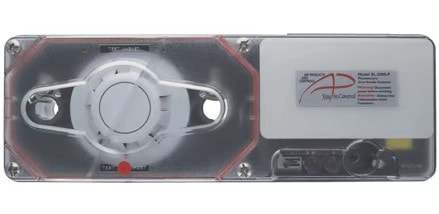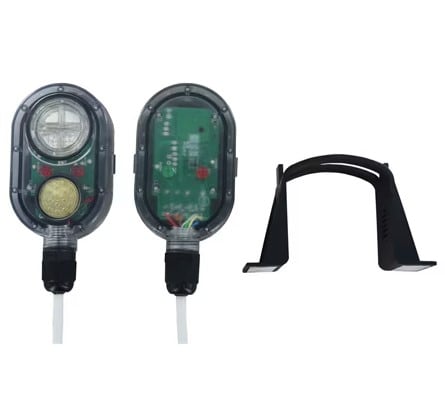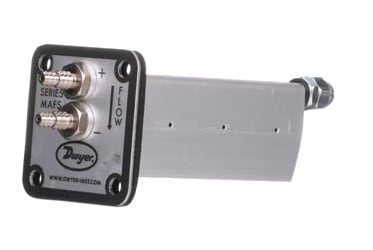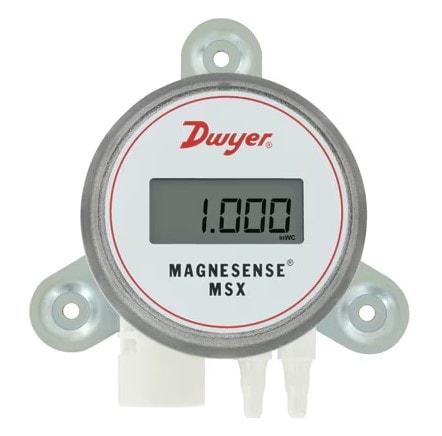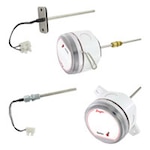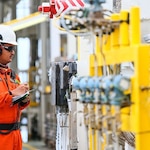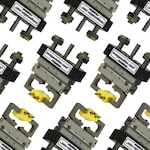 You walk into an office building on a hot summer day. As the door closes behind you, you immediately feel the temperature change. It's nice and cool; it's refreshing - and it's thanks to the terminal units working diligently behind the scenes. Terminal units, while often unseen and unheard, play a crucial role in maintaining comfortable environments in the buildings we frequent in our daily lives, from offices to schools to hospitals.
You walk into an office building on a hot summer day. As the door closes behind you, you immediately feel the temperature change. It's nice and cool; it's refreshing - and it's thanks to the terminal units working diligently behind the scenes. Terminal units, while often unseen and unheard, play a crucial role in maintaining comfortable environments in the buildings we frequent in our daily lives, from offices to schools to hospitals.
What is a Terminal Unit?
A terminal unit is a component of an HVAC system that regulates airflow into individual rooms or zones. Working in coordination with an air handling unit, it helps control temperature, humidity, and air quality to maintain optimal occupant comfort. Typically located at the end of ductwork, terminal units include devices like VAV (Variable Air Volume) boxes, fan-powered boxes, and diffusers.
Challenges and Solutions
Terminal units often face challenges like inconsistent airflow, fluctuating temperature and humidity, and sensor reliability issues. Addressing these problems with the right solutions can significantly improve their efficiency and increase HVAC system performance, ensuring a healthier indoor environment.
Smoke Traveling Undetected Through Ductwork
-
Solution: In commercial and institutional buildings, smoke can move rapidly through ductwork, bypassing room-level detectors and creating major risks. The SL-2000 Duct Smoke Detector is engineered to monitor air flowing through HVAC ducts, enabling early detection of smoke particles before any reaches occupied spaces. It uses a photoelectric sensing chamber designed to detect smoldering fires with high sensitivity, and includes a built-in sampling tube that draws air from the duct without restricting airflow.
The SL-2000 supports both visual and audible alarm outputs, and can interface with building management systems or shut down fans to help isolate smoke. Its compact housing and simplified mounting hardware allow for quick installation in both new construction and retrofit applications. UL-listed and NFPA 72 compliant, it meets key codes and standards for duct smoke detection in HVAC systems.
Water Leaks Damaging Equipment or Fostering Mold
-
Solution: Even minor water leaks in mechanical rooms, terminal units, or ceiling spaces can lead to equipment failure, mold growth, and long-term damage to building infrastructure. The WD3 Water Leak Detector is designed to provide early notification of water presence in critical areas before costly damage occurs. It uses a highly sensitive conductive probe to detect the presence of water at floor level or in hard-to-access spaces.
Once moisture is detected, the WD3 triggers a local LED and audible alarm, while simultaneously providing dry contact outputs that can be tied into building automation systems (BAS) or remote monitoring networks. This dual alert mechanism supports both immediate on-site awareness and centralized facility response.
With compact housing, a removable terminal block, and multiple mounting options, the WD3 is well-suited for integration in tight spaces often found near terminal units or HVAC mechanical zones. By catching leaks early, it helps protect equipment, reduce downtime, and preserve indoor air quality by preventing the conditions that foster mold.
Fluctuating Temperature and Humidity Affecting Comfort and Efficiency
-
Solution: Maintaining stable temperature and humidity levels is essential for occupant comfort and HVAC efficiency. Both the RHP Humidity and Temperature Transmitter and the RHPLC Wall Mount Humidity and Temperature Transmitter provide precise, real-time monitoring of both parameters, enabling better control over indoor environments.
- RHP Humidity and Temperature Transmitter: Designed for duct or outdoor air applications, RHP transmitters combine voltage or current humidity outputs with passive temperature thermistor or RTD outputs. They feature a polymer capacitance humidity sensor unaffected by condensation, fog, high humidity, or contaminants, ensuring long-term reliability. With accuracy options of ±2 %, ±3 %, or ±5 % RH, and temperature accuracy of ±0.2 °C at 25 °C for thermistors, these transmitters support a range of HVAC control strategies. Optional LCD displays provide on-site readings, and various mounting options, including sintered filters for duct installations, enhance versatility.
- RHPLC Wall Mount Humidity and Temperature Transmitter: Ideal for wall-mounted applications, RHPLC transmitters offer a compact and economical solution for building automation systems. They utilize a capacitive polymer sensing element to deliver proportional analog outputs for both humidity and temperature. Available with 2 % or 3 % RH accuracy and a wide selection of passive thermistor or RTD temperature sensors, these transmitters ensure accurate environmental monitoring. The well-vented housing design promotes air flow across the sensor, improving measurement accuracy.
Uneven Airflow Creating Hot and Cold Spots
-
Solution: Inconsistent airflow within HVAC systems can lead to temperature imbalances, resulting in occupant discomfort and inefficient energy use. MAFS Metal Averaging Flow Sensors and PAFS-1000 Averaging Flow Sensors are engineered to provide precise airflow measurements, ensuring better balancing of terminal units across different zones.
- MAFS Metal Averaging Flow Sensor: Designed for clean air applications, the MAFS sensor features a blade profile that minimizes disruption to the air stream, ensuring accurate velocity pressure readings. Its lightweight aluminum AA6063 construction offers durability, and the sensor operates effectively within a temperature range of -31 °F to 400 °F. The MAFS is suitable for duct velocities ranging from 400 to 12,000 FPM, with an accuracy of ±2 % FS for most lengths. Its flange mount design allows for easy installation in rectangular or square ducts.
- PAFS-1000 Averaging Flow Sensor: Ideal for sensing velocity pressure in the inlet section of variable air volume (VAV) terminal units and fan terminal units, the PAFS-1000 utilizes multiple sensing points to average the airflow, providing a reliable measurement of velocity pressure. Constructed from ABS/polycarbonate materials, it operates within a temperature range of 40 °F to 120 °F. The sensor features an integral flange with a gasket for simple mounting in both round and rectangular ducts. Available in various lengths to accommodate different duct sizes, the PAFS-1000 supports effective zone control in HVAC systems.
Poor Temperature Readings Leading to Energy Waste
-
Solution: Inaccurate temperature measurements can lead to inefficient HVAC system operation, resulting in energy waste and discomfort for occupants. The TE Duct & Immersion Temperature Sensor provides precise temperature monitoring, ensuring optimal performance of Variable Air Volume (VAV) systems and other HVAC applications.
These sensors offer high accuracy, with thermistor options providing ±0.22 °C at 25 °C and RTD options offering ±0.15 °C at 0 °C. This level of precision enables precise temperature regulation in each zone, maximizing comfort and minimizing energy consumption.
Designed for versatility, the Series TE sensors are available in both duct-mounted and immersion configurations. Installation is streamlined with features such as external tab housing, flange options for duct applications, multiple conduit knockouts, and a 1/4-turn housing cover with a chain to prevent dropping.
Pressure Drops or Filter Clogs Going Unnoticed
-
Solution: Undetected pressure drops across filters or components can lead to decreased HVAC efficiency, increased energy consumption, and compromised indoor air quality. The 616KD Differential Pressure Transmitters with One-Touch® Calibration and the MSX-Magnesense® Differential Pressure Transmitters continuously monitor pressure differentials across filters or components, helping to identify and address these issues promptly.
- 616KD Differential Pressure Transmitter: The 616KD transmitter features One-Touch® digital push-button calibration, simplifying the process of setting zero and span without the need for additional equipment. With accuracy options of ±0.25 %, ±1 %, or ±2 % full-scale, it caters to various application requirements. The compact design and dual-sized barbed connections (1/8 " and 3/16 ") facilitate easy installation in tight spaces. Its compatibility with air and non-combustible gases makes it suitable for monitoring duct pressure, air handlers, and filter status.
- MSX Magnesense® Differential Pressure Transmitter: The MSX transmitter offers enhanced versatility with 32 selectable pressure ranges and dual output signals (4-20 mA and 0-10 V or 0-5 V). It provides options for linear pressure output or square root extraction for velocity measurements. The rotatable 180 ° LCD display ensures easy readability in various mounting orientations. Its NEMA 4X (IP66) enclosure rating and UL94 V-0 plenum rating make it suitable for demanding environments, including clean rooms and commercial HVAC systems.
Smart Solutions from DwyerOmega
By addressing these common issues with our range of high-quality products, DwyerOmega empowers building owners and managers to create environments that are safe, comfortable, and energy-efficient. Our solutions are designed to enhance the performance and reliability of terminal units, ultimately improving the overall quality of indoor spaces.At DwyerOmega, we enable our customers to improve the world, one measurement at a time. We're dedicated to providing reliable and innovative solutions for HVAC applications, ensuring comfort, safety, and efficiency for buildings and their occupants.
Discover DwyerOmega Solutions
